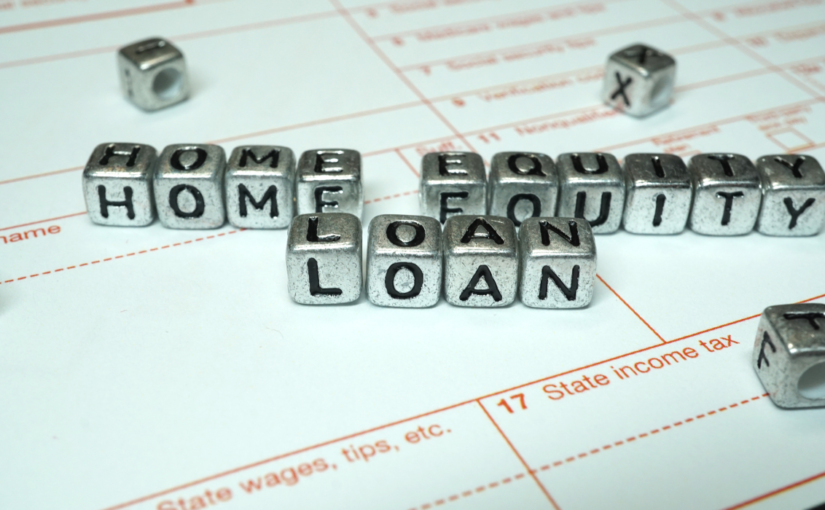back
The Pros and Cons of Investing in Real Estate Through a Home Equity Loan
03-2023

Buying real estate is a common way to invest. It is an asset that has the potential to increase in value over time and serve as a passive income source. Yet real estate investing demands a substantial amount of money, and not everyone has it. An equity loan against your home is one option to invest in real estate. The benefits and drawbacks of using a home equity loan to invest in real estate will be covered in this blog.
Let’s first define what a home equity loan is. Homeowners can borrow money via a home equity loan, which lets them use the equity in their homes as collateral. The equity of a property is the sum of the current market value less the remaining mortgage balance. Your equity, for instance, would be $30,000 if your house is worth $500,000 and you owe $200,000 on your mortgage.
Pros of Investing in Real Estate through a Home Equity Loan
- Capital Availability: A home equity loan gives you access to money that you can utilize to invest in real estate. This kind of loan is secured, which means the borrower must pledge their house as security. So, there is a higher likelihood that the lender would grant the loan, and the borrower often has access to more capital than they would with an unsecured loan.
- Lower Interest Rates: Compared to other borrowing options like credit cards or personal loans, home equity loans often have lower interest rates. This is because the borrower’s home serves as collateral for the loan, lowering the lender’s risk. Lower interest rates imply that the borrower will pay less in interest overall, which may increase the profitability of real estate investing.
- Tax Advantages: Home equity loans may provide tax benefits. In the US, interest on home equity loans is deductable from income up to a specific amount. This can lower financing costs and increase the viability of real estate investment.
- Appreciation Potential: Over time, real estate may increase in value. The borrower may profit from this appreciation by making an investment in real estate through a home equity loan. The borrower can utilize the property to produce passive income through rental revenue or sell it for a profit if the value rises.
Cons of Investing in Real Estate through a Home Equity Loan
- Risk of Foreclosure: By taking out a home equity loan, a borrower puts their house at jeopardy. The lender has the right to seize the residence if the borrower is unable to make the loan installments. The borrower can then lose their house along with any equity they have accrued in it.
- Debt Burden: Taking out a home equity loan makes the borrower’s debt load higher. The borrower can find it difficult to repay loan payments if the real estate venture does not yield adequate profits. This can lower their credit score and cause them financial difficulty.
- Market Risk: Investing in real estate entails market risk. The property’s value may drop as a result of events beyond the borrower’s control, such as shifts in the neighborhood real estate market, a downturn in the economy, or natural disasters. The borrower might not be able to sell the property for a profit or might even lose money if its value drops.
- Limited Diversification: Using a home equity loan to invest in real estate can limit diversification. Risky because the borrower’s investment is dependent on a single piece of real estate. Investment diversification is crucial because it distributes risk across a variety of assets, lessening the impact of any one asset’s subpar performance.
There are advantages and disadvantages to using a home equity loan to invest in real estate. On the one hand, it offers the possibility of appreciation as well as access to cash, cheaper interest rates, and tax benefits. On the other hand, it comes with limited diversification, market risk, debt burden, and foreclosure risk.
In the end, deciding to use a home equity loan to invest in real estate should be based on a careful analysis of the risks and advantages. When selecting a choice, it’s crucial to take one’s financial status, investing objectives, and risk tolerance into account. Making a selection after seeking advice from a financial advisor or real estate expert might also be beneficial.
In conclusion, those who have accumulated home equity and are trying to diversify their investment portfolio may find that investing in real estate through a home equity loan is a realistic choice. To continue with caution and to be aware of any potential risks, nevertheless.
F2H Capital Group is a debt advisory firm specializing in negotiating the best terms for your commercial real estate projects. The company offers a range of financial products and services, including fixed loans, bridge loans, and construction loans across all asset types. Please contact us for any of your financing needs.

